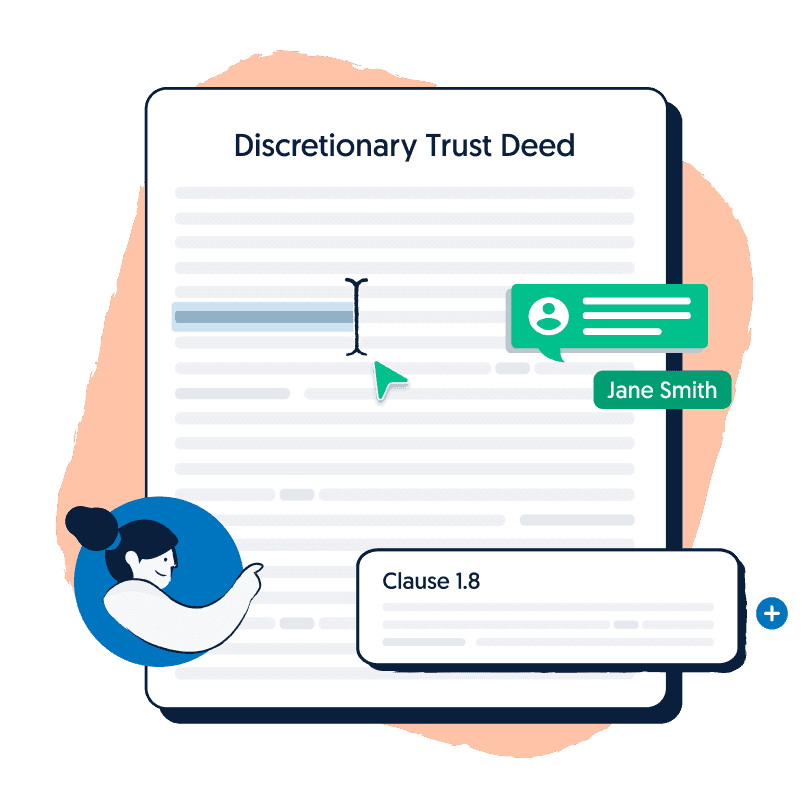Written by Ilyas Omari
Reviewed by Edwin Montoya Zorrilla, LLB
When it comes to legal matters, certain documents hold quite a bit of weight. One such document is a deed. Understanding the concept of a deed and its implications is crucial for individuals navigating legal processes.
In this article, we aim to explain what a deed is and shed light on the workings of a deed poll, empowering you with the essential knowledge on how to use them.
What is a Deed
A deed refers to a legal document that records an agreement or transaction between two or more parties. It is a formal and binding instrument that provides greater security and enforceability compared to a simple contract. While a contract must include consideration (that is, reciprocal promises) in order to be valid, a promise made in a deed from one party to another is valid even if the other party does not make a promise in exchange. For this reason, deeds are commonly used for various purposes, such as transferring property titles, granting rights or permissions, settling disputes, or establishing trusts.
For example, when buying a house in Australia, the transfer of ownership is typically documented through a deed. This deed outlines the terms and conditions of the sale, including the purchase price, property description, and any special conditions agreed upon by the buyer and the seller.
Once signed and executed, the deed becomes legally binding upon the signatories.

Get your Discretionary Trust Deed for free.
You can use this Discretionary Trust Deed to establish a discretionary trust in any state/territory in Australia.
What are common types of Deeds, and when to use them?
There are several types of deeds in Australia. Some of these are listed below
- Deed of Indemnity for Directors
- Deed Poll
- Letter of Credit
- Indemnity Deed
- Shareholder Accession Deed
- Deed of Termination
- Deed Release
- Confidentiality Deed
- Financial Guarantee
- Deed of Credit
Deeds can be used for a variety of purposes, some examples are listed below
Transfer of Intellectual Property between Related Companies: A deed can be used to formalise the transfer of intellectual property rights, such as patents, trademarks, copyrights, or trade secrets, from one company to another within the same corporate group, or the creation of licences. This ensures that the transfer is legally binding and provides clarity on ownership and usage rights.
Documenting an Agreement Reached after a Dispute: In situations where parties have been involved in a dispute and have reached an agreement or settlement, a deed can be used to document the terms and conditions of the agreement. This helps ensure that both parties are legally bound to the terms and provides a clear record of the resolution.
Providing a Bank Guarantee: When a party needs to provide a guarantee or security to a bank or financial institution, such as for a loan or a commercial transaction, a deed can be used to establish the terms and conditions of the guarantee. This provides a legal framework and ensures that the guarantee is enforceable.
Transfer of Property (e.g., House Sale): A deed is commonly used when transferring ownership of a property, such as a house. This type of deed, often referred to as a “property deed” or “conveyance deed,” establishes the legal transfer of ownership rights from the seller to the buyer. It includes details of the property, parties involved, purchase price, and any conditions or restrictions.
What is a Deed Poll?
A deed poll is unique among other deed types as it involves the participation of only one party. It serves as a binding document where the party making the deed expresses their intention, commitment, or promise in favour of an individual or specific entity. One common application of deed polls is for legally changing one’s name.

Need Financial or Legal Advice for your small business?
What are some of the uses of Deed Polls?
Deed polls serve various purposes in Australia including:
- Legal Name Change: Deed polls are commonly used to change one’s name legally. This can be done for personal reasons, such as a change in gender identity or a desire for a new name. Service NSW controls the process of changing your name in NSW. The process only requires a form to be submitted. It is easier if the person is changing their family name due to a divorce. The process differs if you were born overseas. Notably, Queensland allows for name changes every 12 months, while in Victoria and NSW, you can only change your name 3 times in a lifetime.
- Affirmation of Identity: Deed polls can be used to affirm or declare an individual’s identity, especially in cases where official documentation may not accurately reflect their true identity.
- Securing commercial obligations outside of or related to an agreement: for instance, one-way confidentiality agreements may be made as deed polls if nothing is being given in exchange for the promise of confidentiality. Likewise, a promise by a party that goes beyond a promise made in an existing agreement may also be made by deed poll.
- Transfer of Property: Deed polls can facilitate the transfer of property ownership. This is commonly seen in real estate transactions where a property owner intends to transfer the title to another individual or entity.
- Declaration of Intent: Deed polls can be used to declare an individual’s intent or commitment towards a particular cause or course of action. This can include commitments to charitable donations, endowments, or bequests.
FAQs
Are deed polls legally binding?
Deed polls are generally legally binding, but their enforceability can vary depending on the jurisdiction and the specific context in which they are used. The enforceability of a deed poll may depend on certain factors, particularly whether the person seeking to enforce the deed poll is a beneficiary of the intention or promise made in the deed poll. Other factors may include related agreements and applicable laws.
For example, a deed poll for changing one’s name is typically legally binding and recognized by various authorities and institutions.
Who can witness a deed poll in Australia?
In Australia, the requirements for witnesses of a deed poll vary depending on the state or territory. However, in general, the following individuals are commonly accepted as witnesses for a deed poll:
- Legal Practitioner: A solicitor, barrister, or attorney who is currently practicing law in Australia can serve as a witness for a deed poll.
- Justice of the Peace (JP): A registered Justice of the Peace can act as a witness for a deed poll. The state or territory appoints JPs and has the authority to witness and certify documents.
- Notary Public: A Notary Public, who is a qualified legal professional appointed by the state or territory, can serve as a witness for a deed poll. They have the authority to witness and authenticate documents for use both domestically and internationally.
It’s important to note that the requirements and qualifications for each of these categories vary between Australian states and territories.
Conclusion
Executing an agreement differs from executing a deed; understanding these differences is really important. When it comes to documents, choosing the right one for your specific needs is crucial. And if you are looking for additional assistance, don’t hesitate to contact Lawpath’s expert lawyers.

Get a fixed-fee quote from Australia's largest lawyer marketplace.






